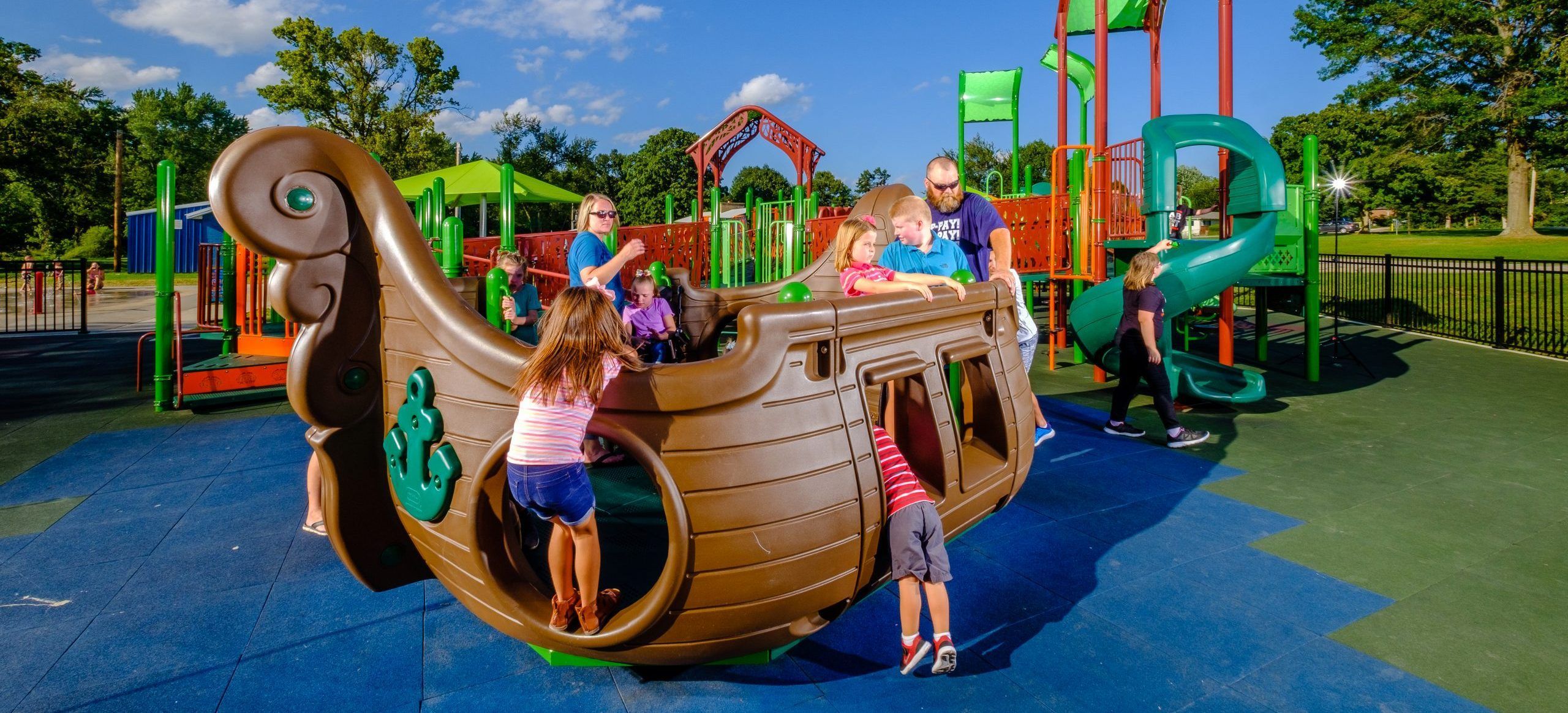How Does Architecture Respond To The Needs Of Inclusive Playgrounds?

As humans, we all have the need to play. It is a fundamental aspect of our development and well-being. Playgrounds are a great way to encourage children to play and build social skills while also providing a safe environment for them to do so. However, not all children are able to fully enjoy their experiences on traditional playgrounds, which is why inclusive playgrounds are becoming more and more popular.
What Are Inclusive Playgrounds?
An inclusive playground is designed to provide a place for all children, regardless of ability, to play together. These playgrounds are created in a way that accommodates individuals with physical, sensory, and cognitive issues. Inclusive play spaces offer opportunities for all children to develop skills, explore their imaginations, build connections, and have fun together.
Why Are Inclusive Playgrounds Important?
As parents and caregivers, we understand the importance of play for our children. Playgrounds are a great place for them to socialize, imagine, and burn off energy, all while developing physical, social, and emotional skills. By creating inclusive playgrounds, we are able to promote a sense of belonging and acceptance for all children, regardless of ability.
What Are the Benefits of Inclusive Playgrounds?
The benefits of inclusive playgrounds can be seen across all ages and abilities. Here are some key benefits:
1. Encourages Physical Activity
An inclusive playground provides a variety of opportunities for physical activity, which contributes to overall physical health. Children can engage in activities such as climbing, sliding, and swinging, which strengthens muscles and improves coordination. Additionally, encouraging physical activity at a young age helps to establish good habits that lead to a healthy lifestyle later in life.
2. Builds Social Skills
Inclusive playgrounds create a space for children to interact with others who may be different from them. This helps to build empathy and understanding, while also creating opportunities for communication and friendships. The ability to interact with others who are different from us is an important skill that is valuable throughout life.
3. Fosters Creativity and Imagination
Playgrounds offer a space for children to use their imaginations and explore their creativity. Inclusive playgrounds offer a variety of activities and equipment that can inspire children to think outside the box and use their imaginations in new ways.
4. Improves Mental Health
Playgrounds provide a space for children to release energy and reduce stress. Additionally, having a sense of belonging and acceptance is important for mental health, and inclusive playgrounds offer an opportunity for children to feel valued and included.
What Makes a Playground Inclusive?
Here are some key features that make a playground inclusive:
1. Accessible Equipment
Inclusive playgrounds have equipment that can be accessed by individuals with various abilities. This includes equipment such as ramps, swings with harnesses, and sensory equipment that can be used by individuals with physical, sensory, and cognitive disabilities.
2. Sensory Elements
Inclusive playgrounds often include sensory elements such as musical equipment, textured surfaces, and different lighting elements. These features can provide sensory stimulation for individuals with sensory disabilities.
3. Ground Surface
The ground surface of an inclusive playground is designed to be accessible, safe, and comfortable for individuals with mobility aids such as wheelchairs or walkers. This may mean using surfaces such as rubber mulch or padded turf instead of traditional playground surfaces like sand or gravel.
4. Signage and Materials
Inclusive playgrounds often use signage and materials that feature symbols or visuals that are easy to understand. This can help individuals with cognitive disabilities to better understand the equipment and activities available on the playground.
Where Can I Find Inclusive Playgrounds?
Inclusive playgrounds are becoming more common in communities across the country. Many parks and playgrounds are being updated to be more inclusive, and new inclusive playgrounds are being built every year. Consult with your local Parks and Recreation department to find inclusive playgrounds in your area.
Conclusion
Inclusive playgrounds are a vital aspect of creating safe and welcoming spaces for all children to play and grow. By providing a space that accommodates individuals with different abilities, we promote a sense of belonging and acceptance while also building physical, social, and emotional skills. We hope this guide has helped you understand the importance and benefits of inclusive playgrounds and how to find them in your community.
FAQ
What is an inclusive playground?
An inclusive playground is designed to provide a place for all children, regardless of ability, to play together. These playgrounds are created in a way that accommodates individuals with physical, sensory, and cognitive issues. Inclusive play spaces offer opportunities for all children to develop skills, explore their imaginations, build connections, and have fun together.
Why are inclusive playgrounds important?
Inclusive playgrounds are important because they provide a space for all children to play and develop, regardless of their abilities. By creating inclusive playgrounds, we are able to promote a sense of belonging and acceptance for all children, while also creating opportunities for physical, social, and emotional growth.
What are the benefits of inclusive playgrounds?
The benefits of inclusive playgrounds include encouraging physical activity, building social skills, fostering creativity and imagination, and improving mental health.
How can I find inclusive playgrounds in my area?
Consult with your local Parks and Recreation department to find inclusive playgrounds in your area. Many parks and playgrounds are being updated to be more inclusive, and new inclusive playgrounds are being built every year.



Post a Comment for "How Does Architecture Respond To The Needs Of Inclusive Playgrounds?"